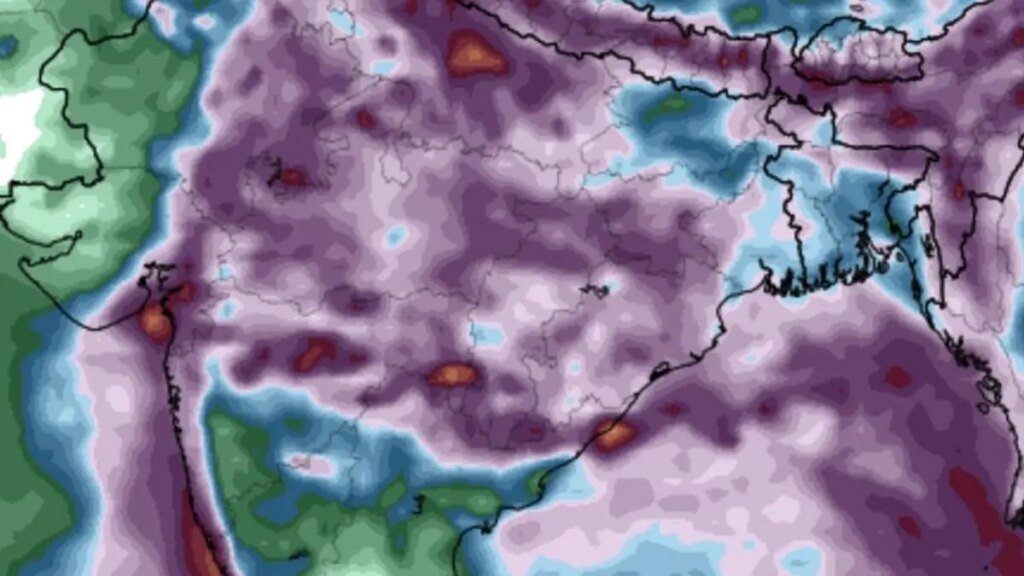Diarrhoea in infants: Paediatrician reveals 4 behavioural changes and 10 symptoms that may hint at dehydration | Health
Monsoon’s unpredictable weather conditions bring a lot of health challenges, particularly making vulnerable groups like babies and older adults more susceptible to illnesses. Diarrhoea is one of the biggest risks during this season, as waterborne contaminants can easily spread. The subsequent result of diarrhoea is dehydration, which may lead to other severe complications if due care is not given on time.
ALSO READ: High risks of diarrhoea and gut issues this monsoon: Bengaluru diabetologist shares 3 tips to protect your gut health
For little babies, who cannot verbalise how they feel, this is where parents need to pay attention to signs like agitated behaviour, which may mean the baby is not well or dehydrated.
To address doubts regarding diarrhoea in children, Dr Paresh Desai, Senior Consultant Paediatric Medicine at Narayana Health SRCC Children’s Hospital, Mumbai, told HT Lifestyle that monitoring the signs of dehydration can help control the situation before it worsens.
What are the causes of diarrhoea?
Diarrhoea is commonly an important sign of infection in the body, as Dr Desai explained, “Infectious organisms enter our bodies through contaminated food or water and cause diarrhoea. The most common infectious organisms are viruses. Around 90 per cent of diarrhoea in children is caused by viruses.”
He named a few viruses associated with infant diarrhoea, “There are many types of viruses, like the Rotavirus and Norwalk virus and many others that cause diarrhoea. Some common bacteria like E. coli, Salmonella, and Shigella are also largely associated with bacterial diarrhoea in children.”
While diarrhoea is a common symptom of infection, it is not a side effect of any medication or drug generally, as the doctor told.
Child behaviours that may indicate dehydration from diarrhoea

Young babies can’t tell their parents when they are feeling unwell. Since any major infection can cause diarrhoea, which may lead to dehydration, parents need to watch for behavioural changes that could require closer medical attention.
Dr Desai noted 4 behavioural changes parents need to check:
- Irritability and fussiness: Due to dehydration and general discomfort, children may cry more, become clingy, or seem easily upset.
- Fatigue and lethargy: Losing fluids rapidly can make children weak and less interested in playing or eating.
- Sleep disruptions: Stomach cramps or frequent trips to the toilet may cause disturbed sleep, leading to tiredness during the day.
- Loss of appetite: Feeling nauseous or bloated can make children refuse food or drink, which can worsen dehydration.
10 symptoms of diarrhoea
Symptoms help parents understand if their baby is having a normal stool or one that requires medical attention. Dr Desai alerted that diarrhoea can be identified by the consistency of the stool, which becomes more watery and loose, while the quantity becomes more, leading to a drop in hydration levels in the body.
The paediatrician listed out 10 symptoms that parents should know:
- Passing loose and very watery stools at least three times.
- Peeing less often, and the urine colour is dark.
- Acting fussy or irritable.
- Dry mouth.
- No tears when they cry.
- Unusual drowsiness or sluggishness.
- Sunken soft spot on the top of the baby’s head.
- Skin that is not elastic as usual (doesn’t spring back when you gently press and release it.)
- Poop smell is foul and differs from other days.
- Poop is yellow in colour and is likely thick and pasty if your baby is on formula.
ORS to reduce dehydration risks
The biggest problem with diarrhoea is dehydration. This is why the paediatrician highly recommended giving ORS during this time.
He said, “ORS (Oral Rehydration Solution) for babies is a crucial electrolyte-balancing drink designed to combat dehydration in infants and young children. Formulated with a precise combination of salts, sugars, and water, ORS serves as a lifesaver during episodes of diarrhoea, vomiting, or excessive fluid loss.”
ORS contains essential minerals like sodium, potassium, and chloride, which further replenish the intense fluid loss from the stool.
Should you feed milk to your baby during diarrhoea?
Parents may confuse diarrhoea happens to children with milk allergy, but Dr Desai warned that removing milk from their diet may not be a good idea. He said, “Babies can be breastfed even when they have diarrhoea and those on formula may be fed a diluted version.”
Lactose intolerance commonly only shows up after the age of two, as Dr Desai pointed out, so before that, milk should generally be continued unless a paediatrician advises otherwise.
Note to readers: This article is for informational purposes only and not a substitute for professional medical advice. Always seek the advice of your doctor with any questions about a medical condition.



